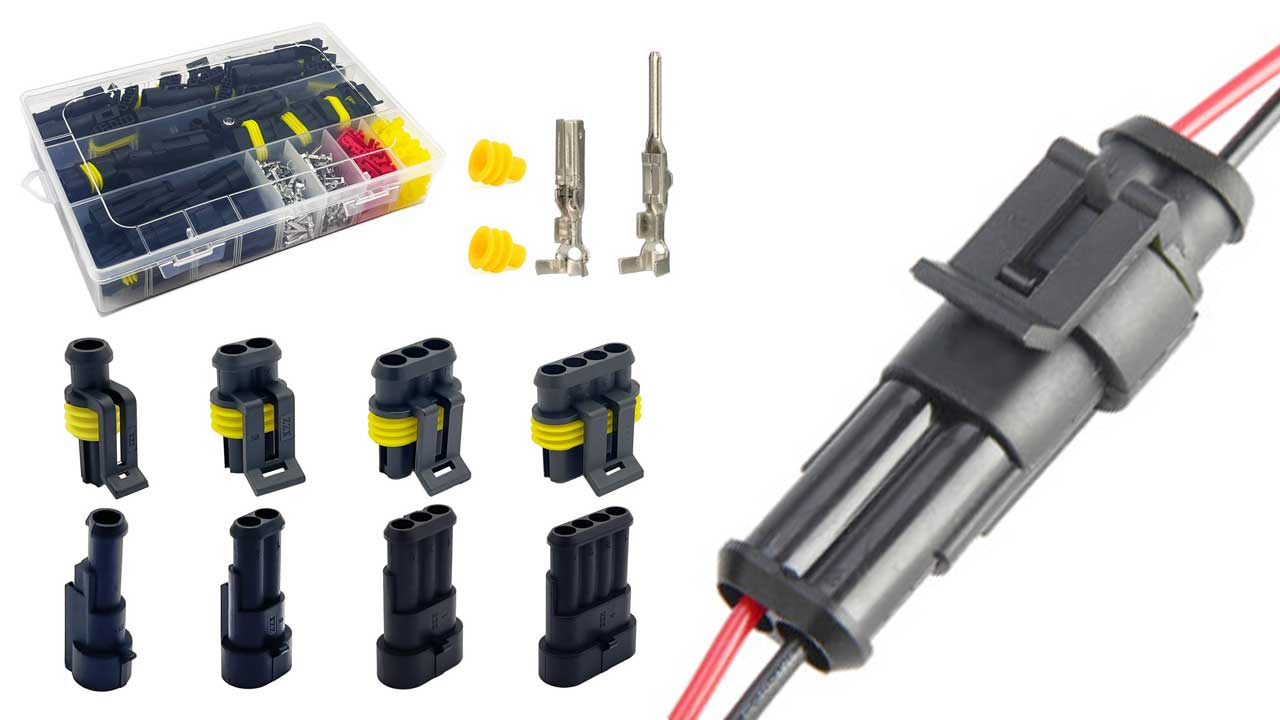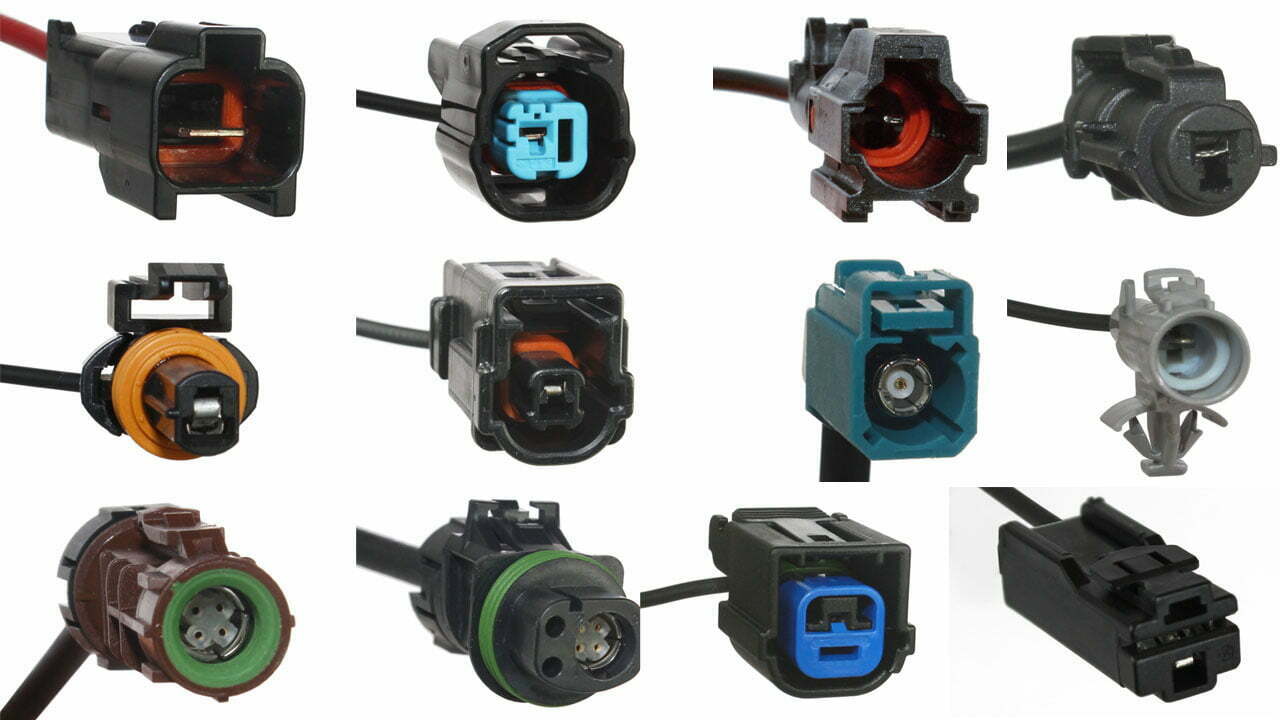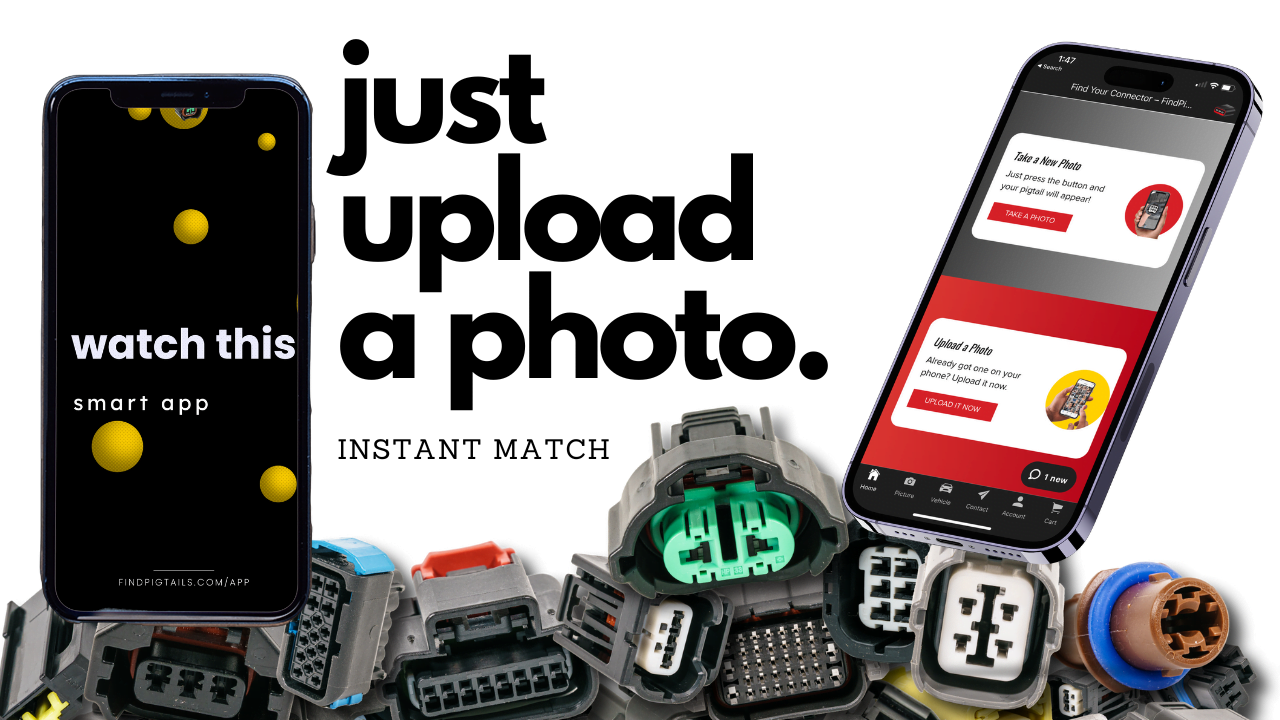The Ugly Truth About Universal Connectors (And When to Avoid Them)
In theory, universal connectors sound like a dream:
“One connector to fit them all — simple, fast, and cheap.”
But in reality? They’re often why “simple fix” turns into a comeback job or a failed inspection.
At FindPigtails.com, we frequently encounter a common issue: A body shop or technician installs a universal pigtail on a sensor or light, and everything appears to be working fine. However, just a few days later, the customer returns with an error code, a malfunctioning system, or, even worse, a complaint that "the light never worked properly again."
So, let’s examine when universal connectors actually cause more harm than good and what to use instead.

What Are Universal Pigtail Connectors?
Universal connectors are off-the-shelf plugs designed to fit multiple vehicle makes and models.
You'll find them at big-box auto parts stores or in generic repair kits. They're marketed as time-savers, and in a pinch, they might be.
But here's the issue:
- They often lack proper pin alignment
- The locking tabs don't secure properly
- The weatherproof seals aren't always present
- And sometimes, they don't carry the correct signal or amperage
Why That Matters
In modern vehicles, connectors aren’t just plastic clips. They’re part of a complex electrical system that manages everything from airbags to adaptive cruise control.
A poor connection can:
- Cause check engine lights
- Trigger false sensor readings
- Disable safety systems
- Lead to short circuits or corrosion
One shop told us about a radar sensor error caused by a universal connector that didn’t seat fully. The plug “clicked in,” but it didn’t make complete contact on one of the pins. The tech spent hours chasing a ghost, all because of a $6 shortcut!

When NOT to Use a Universal Connector
- Airbags or SRS systems
- Sensor-related circuits (crankshaft, camshaft, ABS, etc.)
- Lighting with CAN bus systems
- Anything under warranty or compliance testing
- Any connector with water or weather exposure
Want to know what OEMs say about wiring repairs?
Check out our curated Position Statements on Wiring & Harness Repair, an official guide to what automakers like Toyota, Ford, GM, and BMW allow (or strictly prohibit) regarding harness and connector repairs.
Whether you're a tech, estimator, or adjuster, it's a must-have resource for staying compliant and avoiding liability.
So When Can You Use a Universal Connector?
If you're working on a low-risk, non-critical circuit, say a basic interior light or a trailer wiring mod, a universal might be okay if you're 100% sure of compatibility, seal integrity, and pin alignment.
Even then, you're rolling the dice.

The Better Way: OEM-Style Replacement Connectors
Instead of playing connector roulette, use an OEM-match or OE-style pigtail designed to plug in exactly like the original.
At FindPigtails.com, that’s what we specialize in:
- ✅ Exact fit
- ✅ Correct pinouts and locking mechanisms
- ✅ Weather-sealed when applicable
- ✅ Verified compatibility by part number or photo
“It’s rare I ever need a full harness now,” says Jeff, a tech in Ohio. “I just searched by vehicle or uploaded a photo to FindPigtails, and boom, it shipped the same day.”

Bottom Line: Save Time, Avoid Headaches
Universal connectors may seem like a quick fix, but they’re often a shortcut to bigger problems.
Don’t gamble with your reputation or your customers’ safety.
The correct connector is out there, and with tools like the Pigtail Smart App, Make/Model/Year lookup, and photo search, it’s never been easier to find.
👉 Browse 350,000+ verified connectors at FindPigtails.com
Because close enough… isn’t good enough.

